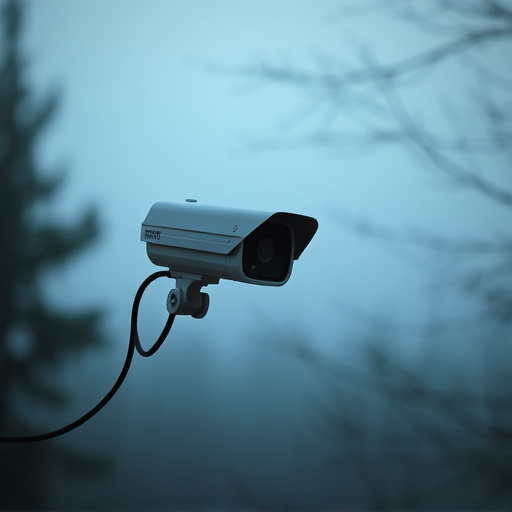In the digital age, hidden microphones used for illegal surveillance pose a growing concern. U.S. states have varying Hidden Camera Laws to protect citizens' privacy, with regulations covering consent, notification, and use cases. Homeowners can safeguard their spaces by staying informed about local laws, conducting regular inspections, using security tools, and being cautious when installing new devices or downloading apps. Understanding Hidden Camera Laws by State is crucial for privacy protection against microphone bugs.
“Uncover the silent invaders: Microphone bug sweeping, a growing concern in modern homes, poses significant privacy risks. This comprehensive guide delves into the intricacies of hidden camera laws across states and presents effective detection techniques for your home security. Understanding legal implications is crucial; know your rights while safeguarding your personal spaces. Learn practical steps to identify and mitigate potential microphone bugs, ensuring peace of mind in an era where privacy is paramount.”
- Understanding Microphone Bug Sweeping and Its Legal Implications
- State-by-State Hidden Camera Laws: What You Need to Know
- Detection Techniques for Home Security: A Comprehensive Guide
- Practical Steps to Ensure Your Privacy Against Microphone Bugs
Understanding Microphone Bug Sweeping and Its Legal Implications
Microphone bug sweeping, also known as audio surveillance or hidden microphone detection, is a specialized technique used to identify and locate covert microphones planted in private spaces. These devices are often used for illegal eavesdropping, invasion of privacy, or industrial espionage. Understanding this practice is crucial, especially with the growing concern over privacy in the digital age.
In terms of legal implications, microphone bug sweeping brings to light various state-specific Hidden Camera Laws. Each U.S. state has its own regulations regarding the installation and use of hidden cameras and microphones, known as “bugging.” These laws dictate what is considered lawful surveillance and protect citizens from unwarranted intrusion into their personal lives. When conducting bug sweeping, it’s essential to stay within legal boundaries, ensuring that any actions taken are in compliance with the Hidden Camera Laws by State to avoid potential legal repercussions.
State-by-State Hidden Camera Laws: What You Need to Know
In the United States, hidden camera laws vary significantly from state to state, reflecting a complex interplay between privacy rights and public safety concerns. Understanding these laws is crucial when considering the use of surveillance devices. Each state has its own regulations regarding the installation and operation of hidden cameras, covering aspects like consent, notification requirements, and permissible uses. For instance, some states have strict rules mandating clear visual indication that a camera is in use, while others allow for more discreet surveillance under specific circumstances.
When deploying bug sweeping techniques at home or any location, it’s essential to familiarize yourself with the Hidden Camera Laws by State. Non-compliance can lead to legal repercussions, including fines and charges for invasion of privacy. Stay informed about your state’s specific regulations to ensure your bug sweeping activities are conducted within legal boundaries, promoting a balance between personal security measures and respect for individual privacy rights.
Detection Techniques for Home Security: A Comprehensive Guide
In the digital age, home security has evolved beyond traditional locks and alarms. One emerging threat that requires careful consideration is the presence of hidden cameras, often referred to as microphone bug sweeps or covert listening devices. These tiny yet powerful tools can be easily concealed within everyday objects, making them difficult to detect. However, with the right knowledge, homeowners can empower themselves to identify potential security breaches.
A comprehensive guide to detection involves understanding both technical methods and legal considerations. For practical approaches, begin by conducting regular visual inspections, paying close attention to unusual fixtures or objects that might hide a camera. Advanced techniques include using specialized equipment like UV lights for detecting infrared sensors and metal detectors for hidden wires. Additionally, staying informed about Hidden Camera Laws by State is essential; these laws dictate the legal boundaries of surveillance and can provide valuable insights into identifying and addressing potential violations.
Practical Steps to Ensure Your Privacy Against Microphone Bugs
To ensure your privacy against microphone bugs, start by understanding the legal landscape surrounding hidden camera laws by state. Each state in the US has its own regulations regarding the installation and use of hidden cameras, including those that can activate microphones. Familiarize yourself with these laws to avoid inadvertently breaking any regulations.
Next, take proactive steps to secure your home environment. This includes regularly updating your operating system and software to patch security vulnerabilities. Use reputable antivirus and anti-malware programs to detect and remove any suspicious activity. Additionally, be cautious when installing new hardware or downloading apps, especially from untrusted sources. Regularly inspect all devices for unauthorized access points or unusual behavior.
In an era where privacy is a precious commodity, understanding the ins and outs of microphone bug sweeping and its associated legal implications is paramount. By familiarizing yourself with the hidden camera laws in your state, you can take proactive steps to safeguard your home and personal space. This comprehensive guide has equipped you with detection techniques and practical measures to ensure your privacy against clandestine listening devices. Remember, awareness is the first line of defense, and by staying informed about your rights and the latest detection methods, you can protect yourself from potential invasion of your personal sanctuary.
